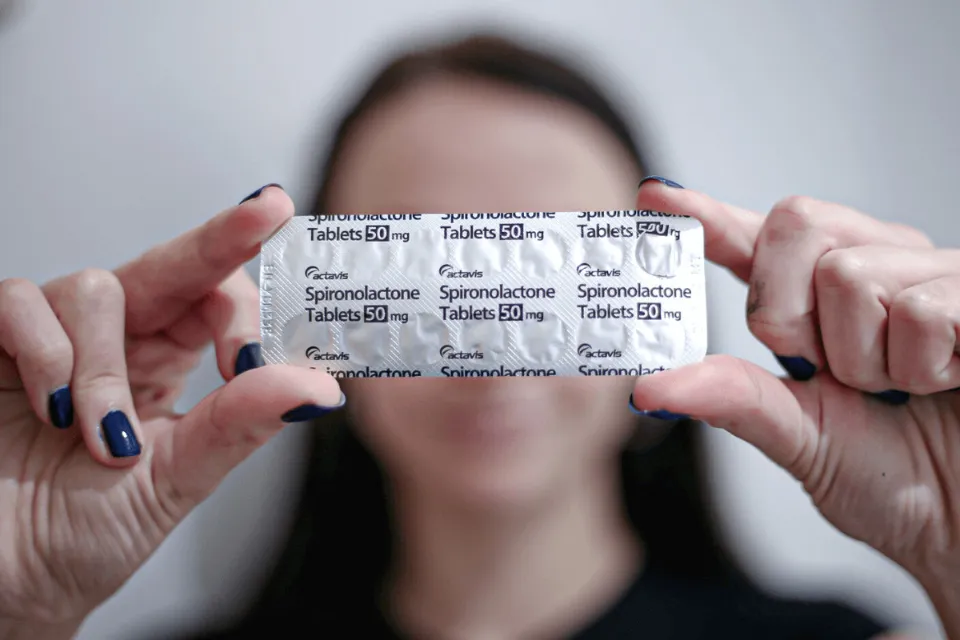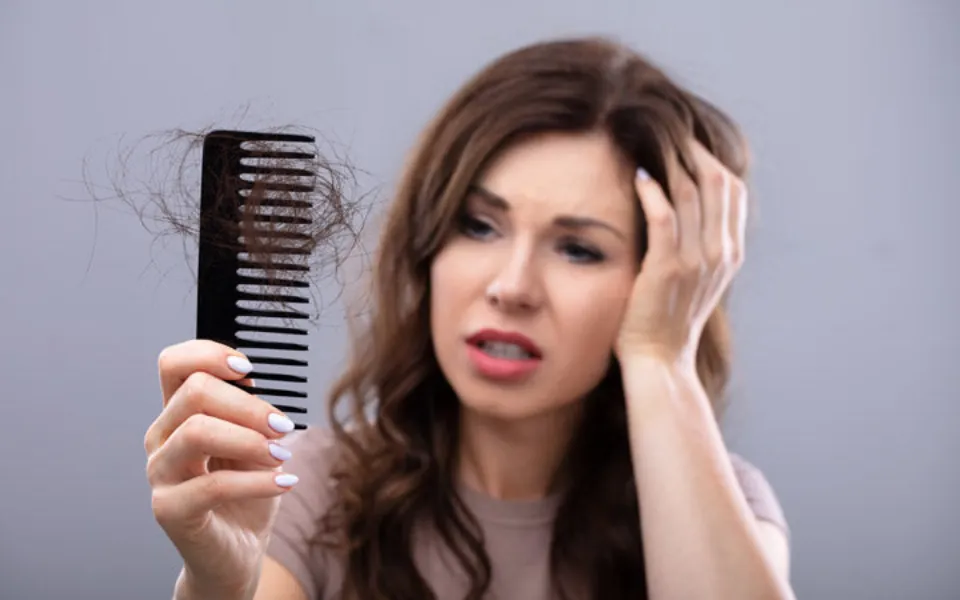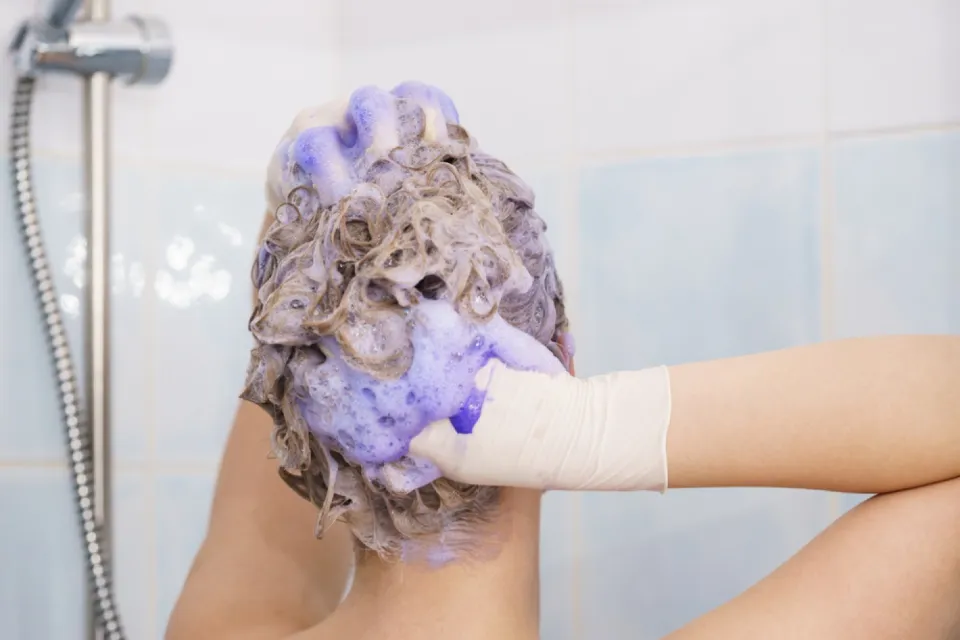Female pattern hair loss, also known as androgenic alopecia, is one of many conditions for which the drug spironolactone may be prescribed. But can spironolactone cause hair loss?
Actually, spironolactone is a medication used to treat hair loss due to androgenic alopecia. Each person’s body will react differently to spironolactone, even though results can take six months to a year to manifest.
In this article, we’ll talk about the hair loss medication spironolactone as well as some crucial safety and side effect issues.
What is Spironolactone?
Spironolactone is a medication used to treat high blood pressure, heart failure, and liver and kidney diseases.
It has been utilized in recent years to treat androgenic alopecia-related hair loss in conjunction with other drugs.
For the treatment of female androgenic alopecia or female pattern hair loss, as well as to assist people who identify as female in managing their hair loss, healthcare professionals may prescribe spironolactone off-label.
Can Spironolactone Cause Hair Loss?

Spironolactone isn’t known to cause hair loss—it’s used to help treat hair loss. Spironolactone aids in preventing hair thinning or loss in some conditions it is used to treat, such as PCOS.
Spironolactone has an intriguing relationship with hair because it suppresses androgen hormones (such as testosterone and dihydrotestosterone, or DHT).
Although it works to stop excessive hair growth on the face and body (hirsutism), it also promotes hair growth on the scalp. It can therefore treat PCOS symptoms like hirsutism as well as PCOS hair loss.
You Might Also Like:
- Does Alcohol Cause Hair Loss?
- Does Mounjaro Cause Hair Loss?
- Does Creatine Cause Hair Loss?
- Does Losartan Cause Hair Loss?
- Does Dandruff Cause Hair Loss?
- Can Anesthesia Cause Hair Loss?
- Does Metformin Cause Hair Loss?
- Does Minoxidil Cause Hair Loss?
- Can Depression Cause Hair Loss?
- Does Wellbutrin Cause Hair Loss?
- Does Hard Water Cause Hair Loss?
- Does Dry Shampoo Cause Hair Loss?
How Does Spironolactone Work for Hair Loss?

Spironolactone is an aldosterone receptor agonist, or mineralocorticoid receptor antagonist (MRA).
This indicates that the main hormones responsible for hair loss, androgens or testosterone, are produced less quickly when spironolactone is present.
It promotes hair growth because its antiandrogenic properties inhibit what aldosterone does in the body.
What Else is Spironolactone Used For?
Spironolactone is a type of medication called a diuretic, and it helps the body shed excess water and salt.
It’s used primarily for health problems associated with swelling and water retention like:
- High blood pressure
- Heart failure
- Kidney issues
- Liver cirrhosis
Spironolactone is also used for several off-label purposes in dermatology:
- Hormonally-related hair loss in women (androgenic alopecia, or female pattern hair loss)
- Acne
- Hirsutism (excess facial hair growth in women)
Possible Side Effects of Spironolactone
Spironolactone is a diuretic, which means that it helps your body to expel excess water, liquids, and certain minerals.
As a result, you must make sure to drink plenty of water while taking this medication to prevent dehydration.
Additionally, it might cause you to urinate more frequently.
Other possible side effects of spironolactone include:
- Irregular menstrual cycles
- High or low potassium levels
- Headaches, migraines, fatigue, and tiredness
- Changes in weight
- Changes in blood pressure and heart rate
- Tenderness in the breast tissues
- Changes in libido and sexual appetite
- Gastrointestinal effects such as vomiting, nausea, diarrhea, constipation, indigestion, and heartburn
- Changes in appetite
- Muscle spasms or twitching
- Depression and anxiety
- Dizziness, faintness, or lightheadedness
- Dark or bloody urine and/or stools
- Fever and chills
- Muscle aches and spasms
- Hives, itching, or skin rash
- Swelling in the limbs
As your body gets used to the medication, many side effects disappear on their own.
Final Words: Can Spironolactone Cause Hair Loss
Spironolactone is an effective treatment for hair loss due to androgenic alopecia in women. However, it may take up to a year to start working.
Speak with your doctor if you’re interested in trying spironolactone for hair loss.
Be sure to let them know about any medical issues you may have as well as the types of hair loss treatments you’ve previously tried.
FAQs
How Long Does It Take for Spironolactone to Work for Hair Loss?
Before you see any progress, it may take up to six months.
Does Spironolactone Change Hair Texture?
In terms of altering hair texture, spironolactone can be effective for some people, but it is important to keep in mind that not everyone experiences the same results.
Is 50 Mg of Spironolactone Enough for Hair Loss?
A daily dose of 100 to 200 milligrams will probably be recommended by your doctor for hair loss.




